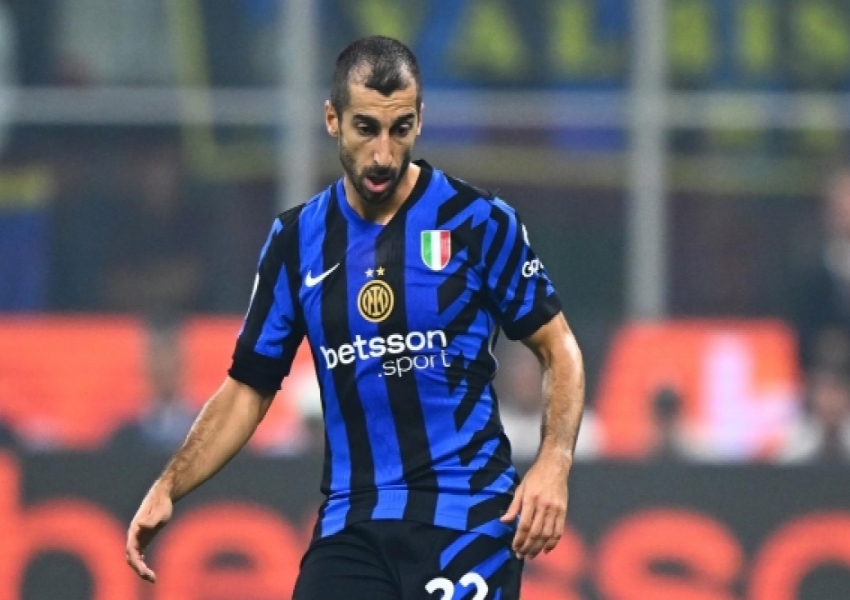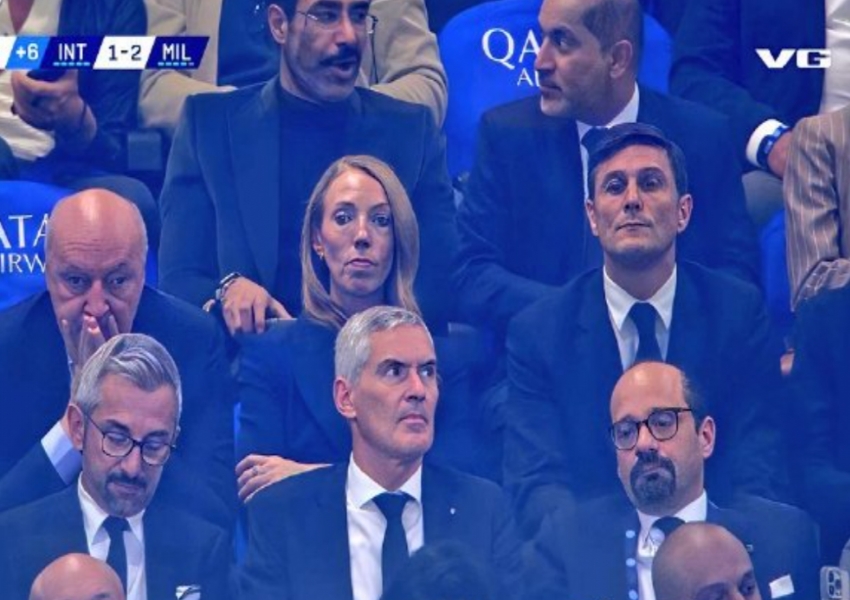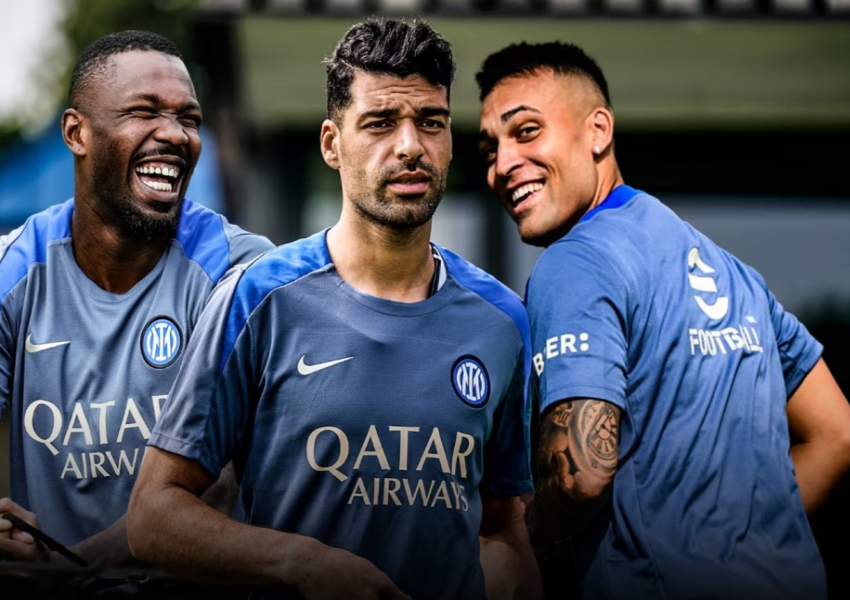The Struggles of Inter Milan’s Key Players: The Blame Lies with the Owners
After the dust settled from the recent derby, football analysts have been dissecting Inter Milan’s sluggish start to the season, searching for the root cause of their underperformance. Who is ultimately to blame? According to a recent podcast by Gazzetta dello Sport, the finger points squarely at Inter’s ownership. On one hand, it’s true that manager Simone Inzaghi and the squad have been more focused on the UEFA Champions League than Serie A. This stems from their desire for revenge against Manchester City following last season's final loss. However, another significant factor is the influence of Oaktree Capital. The private equity firm is pushing Inter to prioritize the Champions League due to the financial rewards it offers.

This focus on revenue generation, as noted by The Guardian, is emblematic of a broader trend in European football, where American investment groups often mismanage their clubs. Their mistakes aren’t just due to a lack of understanding of European football traditions, but rather a preference for reaping rewards without committing to the necessary groundwork. They want to pick the fruit without planting the tree.

Former Inter captain Giuseppe Bergomi also highlighted two areas where this season’s squad is weaker compared to last. While Inter didn't lose any major stars and added several useful rotational players, the aging of key veterans and the inability to replace ball-carrying, possession-based players like Alexis Sánchez and Juan Cuadrado have left a noticeable gap. This, once again, points back to Oaktree Capital’s convoluted business strategy. Normally, when new ownership takes over a club, they invest in the squad to make a good impression, often referred to as a "welcome gift" for the coach. Inzaghi had hoped for such a player—someone like Albert Guðmundsson who could add much-needed ball-carrying abilities.

But instead of receiving such a gift, Inter Milan found themselves in a paradox: the owners talk about youth development, but refuse to address the real issues. Signing young players requires investment, and the ownership is reluctant to spend. Thus, both of these shortcomings—an aging squad and a lack of technical players—can be traced back to the ownership. This was painfully evident in the derby defeat to AC Milan. After the game, player ratings across Italian media heavily criticized three players in particular: Lautaro Martínez, Benjamin Pavard, and Henrikh Mkhitaryan.
Henrikh Mkhitaryan: Age Is Taking Its Toll
Mkhitaryan has been struggling all season, and the reason is simple: he’s getting older. At 35 years and 247 days, the Armenian midfielder is a living testament to the rule that players at this advanced age don’t decline gradually—they fall off a cliff. No amount of national team retirement or diligent physical maintenance can reverse this inevitable process.
Last season, Mkhitaryan was one of Inter’s most reliable ball carriers, a player who could take the ball under pressure and move it upfield with poise. But this year, his physical decline has hit hard, and it’s impacting Inter’s midfield structure. Luckily, the club brought in Piotr Zieliński, who, if integrated quickly into the system, could help alleviate some of the damage caused by Mkhitaryan’s drop in form.
It’s worth noting that Zieliński was signed during Steven Zhang’s tenure as president, well before Oaktree’s influence took hold. If the decision to bring him in had been delayed to this summer, it’s quite possible that Oaktree would have rejected the move. Zieliński doesn’t fit their model of signing young players with high resale value. Had Oaktree blocked the deal, Inter would have found themselves in an even deeper crisis.
Benjamin Pavard: A Shift in Role Leading to Decline
Pavard’s recent dip in form has caught everyone by surprise. He has struggled to meet expectations, and many pundits, including Fabio Capello and Bergomi, believe the primary reason is tactical. This season, Pavard has been asked to do more than ever before—more ball carrying, more forward runs, and more attacking responsibility. These demands have taken a toll on his stamina, his duel success rate, and his defensive sharpness.
Last season, Pavard touched the ball 59.7 times per 90 minutes. This season, that number has skyrocketed to over 80 touches per game. His progressive carries have also seen a huge jump, from 117.9 yards per 90 minutes last season to 170.3 yards this season.
When a center-back spends so much energy on carrying the ball forward, sprinting up and down the pitch, and joining the attack, their defensive effectiveness is bound to suffer. Last season, Pavard won 67% of his duels. This season, that figure has dropped below 50%.
Why has Pavard been forced into this more demanding role? The answer lies in the squad’s overall decline in ball possession skills. With fewer players capable of carrying the ball, Pavard has been tasked with doing more, stretching him beyond his comfort zone. In the derby, AC Milan’s manager Stefano Pioli instructed his players to target Pavard, often sending two or three players to pressure him. The result? Pavard became the player who lost possession the most in that game.
While Pavard’s personal form has been criticized, the underlying issue goes back to Inter’s failure to bring in technical players over the summer. Pavard, like Mkhitaryan, is bearing the brunt of the ownership’s refusal to invest in ball-carrying talent.
Lautaro Martínez: Fatigue from a Shortened Break
Lautaro Martínez has also had a difficult start to the season. After four appearances, the Argentine striker has yet to score, leaving many wondering what has happened to the usually reliable forward. Gazzetta dello Sport reports that the root of the problem can be traced back to early August. Because of Mehdi Taremi’s injury and Oaktree’s refusal to approve the signing of a backup striker, Lautaro was forced to cut his vacation short by five or six days and return to training early.
This early return effectively slashed one-third of Lautaro’s recovery time following a grueling season, including the taxing 2023 Copa América. As a result, fatigue has accumulated, severely impacting his fitness and form. Lautaro is the type of player whose performance is heavily dependent on his physical condition. When he’s tired or injured, his effectiveness drops significantly. The 2022 World Cup in Qatar was a prime example of this, where Lautaro played through injury and struggled to make an impact.
Thankfully, Lautaro’s form is starting to pick up. Despite being quiet for much of the derby, he still managed to provide an assist, showcasing flashes of his usual brilliance. Taremi’s return to fitness should also help Inzaghi rotate the squad more effectively, allowing Lautaro to rest and recover fully.
However, it’s worth asking: if Taremi had not been signed during the Zhang era, would Oaktree have approved the transfer this summer? Like Zieliński, Taremi doesn’t fit Oaktree’s business model, and his arrival might have been blocked. If that had happened, Inter Milan’s attacking options would be even more limited than they are now.
Ownership’s Responsibility in Inter’s Decline
In the cases of Lautaro Martínez, Henrikh Mkhitaryan, and Benjamin Pavard, each player’s struggles can be traced back to a single source: the ownership group. Oaktree Capital’s decisions this summer have had far-reaching consequences, and the impact has been felt across the squad. While the players themselves bear some responsibility, it’s clear that the club’s financial strategy and refusal to invest in key areas have played a significant role in Inter’s shaky start.
As we’ve seen before, Inter are not the only club to suffer from questionable ownership decisions. AC Milan fans staged protests against RedBird Capital last season, and Roma supporters have voiced their anger at Dan Friedkin following the dismissal of Daniele De Rossi. When these situations occur repeatedly across different clubs, it’s clear that the problem runs deeper than individual circumstances.
Copyright Statement:
Author: mrfootballer
Source: Mrfootballer
The copyright of this article belongs to the author. Reproduction is not allowed without permission.
Recommended Blog
- La Liga Round 7: Real Madrid’s Bench Depth Yet to Recover, Valladolid Tougher Than Expected
- Premier League Round 5: Arsenal More Drained Than Man City, Forest Facing Another Tough Test
- Serie A Round 4: Parma Faces Goalkeeper Crisis, Verona's Defensive System Begins to Take Shape
- Inzaghi’s Worst Start at Inter Not Due to Rotation: Key Lessons Highlight Dual-Core Principle
- Inter's Major Rotation Leaves Three Key Weapons Ready for Manchester City: Striker Chasing 64-Year Record
- La Liga Round 5: Barcelona's Chemistry Outshines Real Madrid, Atletico Madrid's Defense Returns to Ruthless Form
- Will Italy's Hero Become Inter's Problem? Analyzing the Frattesi Paradox
- Inter's Grueling Post-Champions League Serie A Schedule: Six Tough Matches Highlight the Challenge Ahead
- Inter's Wage Surge Driven by Unmatched Squad Valuation Growth: A Five-Year Budget Comparison of the Milan Rivals
- J.League Cup Quarterfinals: Kofu Favors Their Chances, Hiroshima’s Defense Looks Unbreakable
Hot Blog
- English Media: Manchester United Will Win Premier League Title in 2028! History Will Repeat Itself, Two Teams Serve as Inspirations
- 0-2 Double Defeat! China National Team Stuck at 6 Points: No More Direct World Cup Hopes, Two Crucial Matches Ahead
- 4 AM Showdown: Barcelona's Revenge Match! Win = 3-Point Lead Over Real Madrid, Key Players Rested
- China National Football Team Drops 13.6 Points, Slips to 94th in FIFA Rankings: Syria Overtakes, New 9-Year Low
- 0-0 Draw! Japan 12 Shots, 2 Missed One-on-Ones: 8 Matches, 20 Points, Group Winner, Saudi Arabia Stuck at 10 Points in 3rd
- 4-1, Double Win Over Brazil! Argentina Celebrates: World Cup Qualification Secured, 4th Team Globally to Qualify
- Real Madrid Got Lazy: 7 Kilometers Less Running in UCL! Two Superstar Spectators While Barça Outruns Them All
- United Go for Glory: Unbeaten in 10, Fueled by Kobbie Mainoo’s Return, Red Devils Eye Europa League Crown
- Champions League Classic: Barça’s Midfield Maestro Worshipped by Thousands After 11.5KM Marathon
- Champions League Semifinal Odds: Barça at 99%, Real Madrid’s Hopes Dwindle to 6%, PSG Cruise Ahead